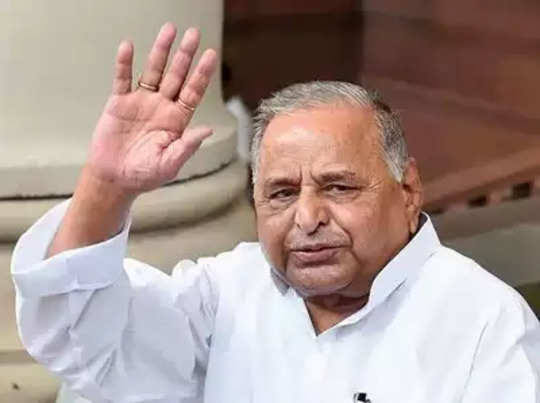
R Krishna Das
Mulayam Singh Yadav is no more, a wrestler who knows his best moves. The 83-year-old Samajwadi leader did not falter to use the experience in the political front too.
For the Bharatiya Janata Party (BJP), he has never been a friend. But he always kept Congress confused, whether he was an adversary or an admirer. The series of incidents justify the avowal.
The United Progressive Alliance (UPA) government led by Congress was almost on the verge of collapse in the mid of 2008 after Left parties withdrew support in protest against the nuclear deal with the United States. In June, Mulayam Singh’s trusted aide Amar Singh sent a message to Prime Minister Dr Manmohan Singh’s press advisor Sanjaya Baru from a hospital in Colorado where he was recuperating.
Amar Singh wished to communicate to the Prime Minister that Americans are so warm and friendly, and that India may have a good relation with the country. The message was general but for those in the power centre, it was a clear signal. He had hinted through the pointers that Samajwadi Party’s willingness to support Dr Singh on the nuclear deal.
The Prime Minister reportedly had a talk with Amar Singh. The Left parties were stunned when reports appeared in the media that Mulayam Singh was considering to support the nuclear deal. On June 25, the UPA-Left committee was supposed to meet in the last-ditch effort to save the government. Just before the meeting, CPI (M) General Secretary Prakash Karat met Mulayam Singh. But he was reluctant to make any commitment and said the Samajwadi Party would be meeting on July 3 to take the final call.
By then, Amar Singh had arrived from America. He organized a press conference and played the secular card, stating that a division in the secular forces will be harmful for the country. As part of another move, Mulayam Singh and Amar Singh called on former President and renowned technocrat Dr A P J Abdul Kalam. After the meeting, Kalam issued a statement in support of the nuclear deal and urged Yadav to support the government.
Kalam’s appeal was exactly the kind of political backing Mulayam needed to justify the switch to his cadres. The strategy worked. On July 22, 2008 the UPA faced its first confidence vote in the Lok Sabha after the CPI (Marxist) led Left Front withdrew support over India approaching the IAEA for Indo-U.S. nuclear deal. The UPA won the confidence vote with 275 votes to the opposition’s 256, (10 members abstained from the vote) to record a 19-vote victory. It could be possible only because of Mulayam Singh.
However, in 2013, Yadav admitted that they had ‘made a blunder of lifetime’ by supporting the nuclear deal.
In 2012, Congress relied on Mulayam Singh for the Presidential elections. During discussions with different political parties, Mamata Banerjee of Trinamool played the googly and proposed the name of incumbent Prime Minister Dr Manmohan Singh and former President Dr A P J Abul Kalam. Mulayam Singh Yadav supported Mamata that shocked Congress and also put it in an embarrassing situation.
This was not the first time Mulayam Singh Yadav had dodged the Congress. In April 1999, Atal Bihari Vajpayee failed to form the government and Congress staked a claim with the support of opposition parties. Sonia Gandhi met President Narayanan and presented the support of 272 MPs that included members of Samajwadi Party also. Narayanan gave two days to prove her majority. Mulayam Singh Yadav, who had earlier offered to support, pulled out.
The Congress failed to form the government and the Lok Sabha was dissolved on April 26, 1999.



